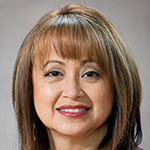Employee resource groups (ERGs), once seen only as social networks, are increasingly being utilized to support business initiatives. Likewise, their connection to Hispanic communities is similarly evolving. To understand the effects of this change, Hispanic Executive talks to three ERG experts at health care service giant McKesson Corporation who oversee the company’s Hispanic ERG, PALMa. Executive vice president of human resources and executive sponsor of PALMa Jorge Figueredo, vice president of brand pharmaceuticals and PALMa founder Martha Torres-Morgan, and vice president of global compliance and ethics and current PALMa chair Lori Martinez share their insights.



How has the role of the ERG grown in utility in the last five years, at McKesson and elsewhere?
Jorge Figueredo: We’re relatively early in our journey. We launched our first ERG in 2009. We have not been at this for a long time, but I’m really pleased with what we have accomplished. We now have six ERGs and 15 local chapters throughout the United States, some with membership as high as 400 employees. We ponder how we can apply diversity to business strategies and how ERGs can help us attract, retain, and develop a diverse staff. We’ve also looked at how ERGs can help ensure we have an inclusive culture that ignites and excites people to work here and produce great business results.
Martha Torres-Morgan: In the past three years, we have really evolved. I think that’s because of the message coming from our CEO, John Hammergren, about the importance of diversity, especially now that we’ve become a global company. We need diversity in the workplace to understand how to work in European cultures, where we’ve previously never operated. The message from management all the way down is that ERGs are an important part of that diversity strategy and of our business. They’re part of who we are and what we do.
How do PALMa’s diversity initiatives align with those of the overall organization?
Torres-Morgan: When we started diving into the numbers and looking into the Latino population, especially at the corporate level, it was pretty frightening for executives to find out that there is a very limited pool. There was a need we wanted to address with PALMa, and I took those numbers to the board of directors. They then put their support into creating programs to foster and empower the Latino community within McKesson—everything from career development to education to simply checking in with employees to ask how things are going. It was a brand new approach.
Why is diversity important to your department, specifically?
Figueredo: In human resources, diversity is crucial. It’s about driving business success. Diversity helps us be more competitive. It helps us unlock new business strategies when you have great representation and ways of executing the strategy. That inclusive culture is heavily associated with innovation and driving change. We want to make sure that HR drives success within the company. While there are some aspects that are terrific, wonderful, and meaningful on their own, we’re not pursuing diversity just for diversity’s sake. It helps us drive better business performance.
Torres-Morgan: Diversity brings in different kinds of thinking to help us grow in our department. [In compliance and ethics], we need to have a culture that is nimble, creative, and keeps entrepreneurship in mind. Diversity gives us that.
How do you demonstrate the value of diversity to the company’s leaders?
Figueredo: We use data—we are a very data-driven company. We really get our leaders’ input. Every business leader wants an edge over their competitors, and we think using diversity as a strategy can do that. We want to know that we’re tapping into all the talent available to drive business performance, and we’re not leaving anybody behind. We monitor and track this growth, and we show them our results. It has not been a hard sell here.
Lori Martinez: This is best demonstrated through individuals willing to provide a point of view that is specific to the Latino community. This allows us to have an open and transparent dialogue about the successes and challenges of being Latino within McKesson and within the community. If we have the right environment and courage to share those unique experiences that shape who we are, we have the ability to impact the products and services available to our customers, as well as contribute to the experiences of our PALMa members.
Has maintaining a diverse workforce always been a top priority in your department?
Figueredo: There’s been a significant shift to even call it diversity within the field of human resources. That’s more of a legal requirement, and that’s still there as an aspect of what we have to do. We make sure our company meets our obligations. But it has shifted from a legal requirement to a social responsibility. The primary purpose is that it’s the right thing to do, not just the legal thing to do. What’s changed the most with this type of work is that we don’t look just at what’s legal or what’s right; we look at what will drive the success of our business. Having a diverse workforce is now an element of winning in the market.
How does McKesson leverage PALMa and other ERGs to connect with consumers?
Figueredo: We’re a business-to-business company, so we don’t have a direct link to consumers. We seek other ways to utilize our ERGs. For example, OPEN, our LGBT ERG, partnered with human resources to develop policies that support benefits that appeal to that group, in order to attract the best talent. We work hand-in-hand with OPEN, and now we’re award-winning because of our LGBT-friendly policies.
Torres-Morgan: PALMa hosts an internship for Latino individuals; we utilize our ERGs to think of solutions like that. We also hold brainstorming sessions to make sure we’re addressing issues like working with pharmacies to distribute our materials to people who don’t speak English, helping independent pharmacies across the country.
How does McKesson recognize and reward employees who lead ERGs?
Torres-Morgan: As we tried to get people on board after we founded PALMa, many asked what would be in it for them because working on PALMa would be extra work on top of their day-to-day jobs. We’ve done a good job in the last three years of putting together programs in which members of PALMa can network with senior management and develop their career paths and leadership skills.
Martinez: McKesson supports PALMa members with a valuable network of senior leaders. It provides exposure to business areas and leaders they might not otherwise have. There are also additional development opportunities via key training or conference events. On an annual basis, the work completed through board membership in PALMa is recognized within the annual review process. The diversity team sends out detailed notes to business leadership, which, in turn, recognizes the accomplishments and benefits of the ERG. This helps reinforce the support and time commitment given by ERG board members.
How is progress within PALMa measured and communicated to the rest of the company?
Torres-Morgan: We’re still working on it. I look at it as a battleship; to move it is a very slow process. One of the successes we’ve had is that the communications officers within the ERGs have promoted them successfully. We use the company’s internal website to promote special celebrations and events, and [our executive sponsor] Jorge [Figueredo] travels to satellite offices and hosts regular, informal meet-ups with employees. He promotes not just PALMa, but all ERGs. Our CEO also communicates what we do and the importance of diversity. Communication has grown quite a bit in the last three years, and we continue to find new tools.
McKesson Corporation
Headquartered: San Francisco, CA
Founded: 1833 as Olson & McKesson
Fortune 500 Rank: 15
About: McKesson is a health care services and information technology company dedicated to making the business of health care run better.

